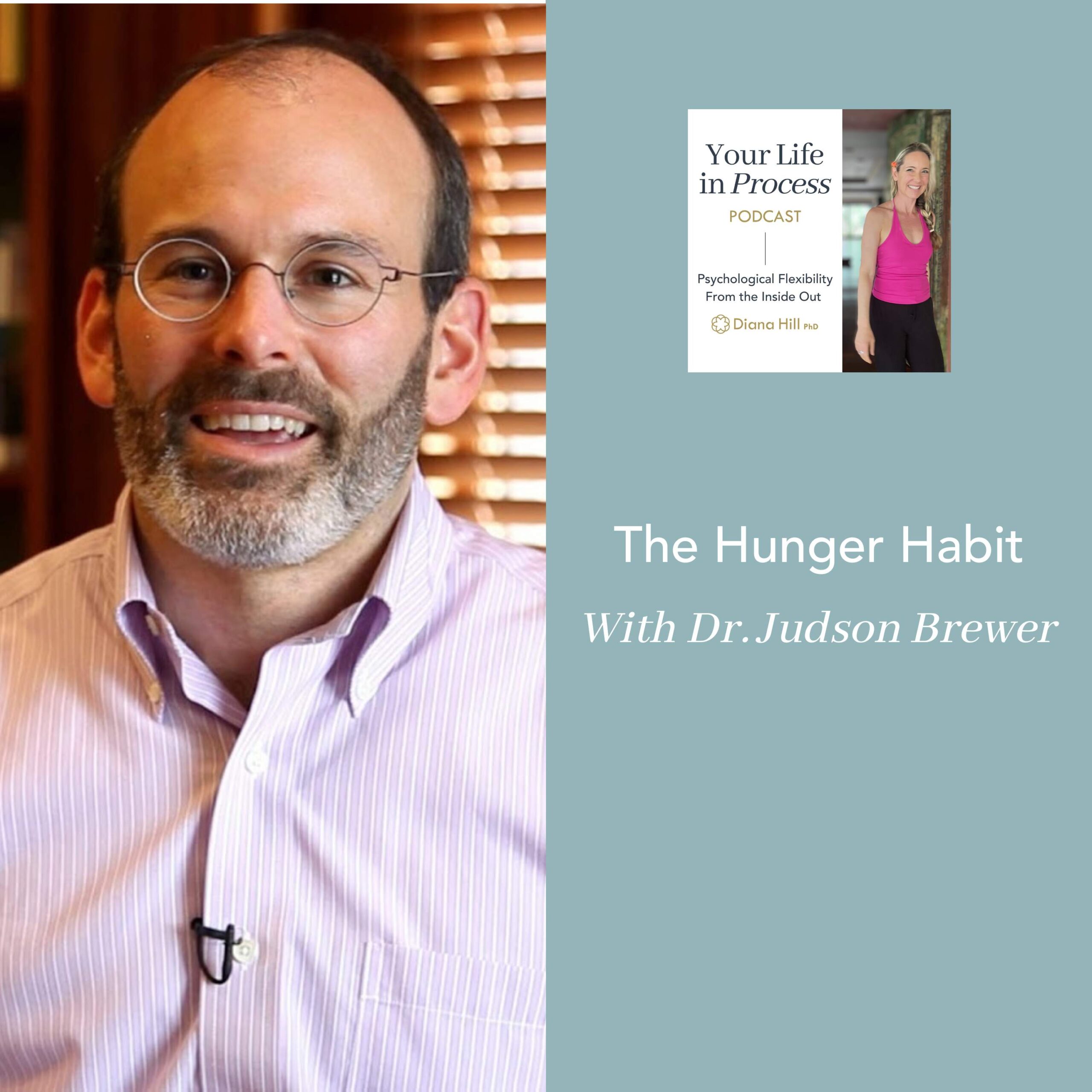How can you use neuroscience to break the habit of eating when you are not hungry? In this episode, Dr. Jud Brewer shares a three-step method to rewire your brain and relationship with food.
- Dr. Jud’s thoughts on GLP-1 agonists
- Dr. Jud leads Diana through his three-step model
- The “bigger better offer” than eating when not hungry
- The power of self-compassion for changing your eating habits
Listen to this episode to learn tips and strategies for breaking eating habits that do not serve your well-being and how self-compassion can help.
About Jud Brewer
Jud Brewer MD PhD (“Dr. Jud”) is a New York Times best-selling author and thought leader in the field of habit change and the “science of self-mastery”, having combined over 25 years of experience with mindfulness training with his scientific research therein. He is the Director of Research and Innovation at the Mindfulness Center and associate professor in Behavioral and Social Sciences and Psychiatry at the Schools of Public Health & Medicine at Brown University. He is also the executive medical director of behavioral health at Sharecare Inc. and a research affiliate at MIT. Dr. Brewer founded MindSciences (which merged with Sharcecare Inc. in 2020) to move his discoveries of clinical evidence behind mindfulness for anxiety, eating, smoking and other behavior change into the hands of consumers (see www.drjud.com for more information). He is the author of The Craving Mind, Unwinding Anxiety, and The Hunger Habit. Follow him on twitter @judbrewer.
Related Resources
Check Out the Eat Right Now App
Getting Curious and Choosing Meaningful Passions With Dr. Judson Brewer
Identify Your Burnout Habit Loops with Dr. Judson Brewer
Busting Brain Myths With Dr. Judson Brewer
Overcome Overeating Using Behavioral Neuroscience with Dr. Judson Brewer
Join Diana for 21 days of ACT Daily Toward Your Health on Instagram Stories!
Episode 101: Break Through Your Exercise Barriers using ACT with Dr. Jason Lillis
Episode 38. How To Be A Healthy Deviant With Pilar Gerasimo
Ep. 64: Rethink Your Position and Move Nutritiously With Katy Bowman (Live From Costa Rica!)
Episode 25. The Psychological Science of Yoga with Dr. Julie Kangas
Episode 23. Overcome Overeating Using Behavioral Neuroscience with Dr. Judson Brewer
Missed the Wise Effort Together Gathering? You can still watch here
Subscribe to my free Wise Effort newsletter
Become a MORE Life in Process member to support the show.
Find out what kind of Striver you are and get your free Skillful Striving Toolkit
Want to learn more about ACT? Take Diana’s on-demand course Foundations of ACT
Diana’s Events
Sign up for the Wise Effort Together Gathering
Sign up for Diana’s Reset and Restore Retreat in Costa Rica in Spring 2024!
Meditate with Diana at Yoga Soup
Learn from Diana at an upcoming event
Connect With Diana
Thank you for listening to Your Life in Process!
Subscribe to the podcast for free on Apple Podcasts, Spotify, Google Podcasts.
Follow Diana on YouTube, Instagram, LinkedIn, Facebook, and Diana’s weerview.bsite.
Leave feedback for the show or a voicemail at (805) 457-2776
Thank you to the team Craig and Ashley Hiatt. Thank you to Benjamin Gould of Bell & Branch for your beautiful music.
Remember when you become psychologically flexible, you become free.

+ show Comments
- Hide Comments
add a comment